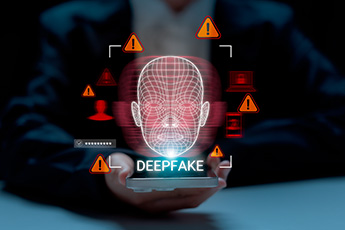Cisco reported that there were 5.5B meeting minutes on Webex the first 11 business days of March. Can you imagine what that number looks like now? Technology is definitely being pushed to new heights with the heightened levels of remote working, and it doesn't stop there.
The development of technology within the banking industry has long been on the rise, but the COVID-19 crisis is stepping it up in new ways that could have a long-term, global impact.
As countries scramble to contain the coronavirus, some places have turned to geolocation and data analytics to help with their efforts. In the US, the New Mexico Governor reported that her state is using cell phone data for social distancing models to ensure compliance. The use of geolocation data may be gaining more traction as two tech companies were able to show impactful results of Florida's spring break exodus through a location data map. This type of data has been used to enhance the customer experience in the past; but with the crisis, precision is more important than ever. That said, some have raised privacy flags about this practice.
In Poland, privacy seems to be less of an issue. There they have introduced a smartphone app using biometrics to ensure those under quarantine adhere to guidelines. Through a combination of selfies submitted periodically coupled with geolocation, the app monitors a quarantined individual's location and alerts the police of any anomalies. Meanwhile, in Malaysia and China, biometrics are being used to try to identify anyone in public likely to be infected, using a combination of facial recognition and body temperature sensors. Some of these enhanced biometrics are likely to make their way into the financial industry, especially as customers become more accustomed to them.
Fear of virus contamination through keypads and payment terminals has also spurred heightened efforts to use contactless payments and transactions. MasterCard's tap-to-pay credit cards have already been in use in roughly 20 pilot programs globally, while JPMorgan Chase and Citibank have a contactless card option. As contactless payments become more secure and widely used, more financial institutions may follow suit.
Trying to help homebuyers remotely, nontraditional loan and mortgage providers in Australia have found biometrics helpful to verify the identity of these individuals. The identity app relies on security measures that incorporate both fingerprints and biometric selfies, along with ID documents, to enable the distribution and execution of loan applications electronically.
While many people may still be leery of the security and privacy issues around these technologies, COVID-19 could be a game-changer. If people begin using tap-to-pay credit cards without any issues and see some of the ways geolocation and biometrics could be beneficial, it may only be a matter of time before acceptance expands. We will continue to monitor the progress and keep you posted, as always.




